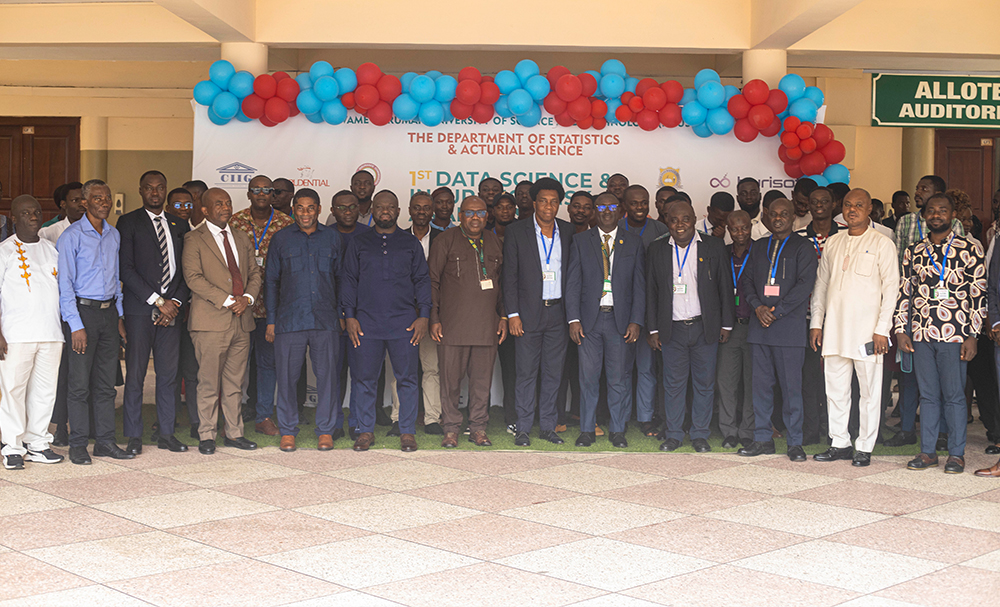The Department of Statistics and Actuarial Science at the Kwame Nkrumah University of Science and Technology (KNUST), Kumasi, has held the maiden edition of the Data Science and Insurance Risk Analytics Conference, aimed at transforming risk and resilience through predictive analytics.
The two-day conference brought together academics, industry experts, researchers, and students to discuss how emerging technologies and data science can reshape risk management and transform the insurance sector.
“This conference, the first of its kind in any part of the world and proudly hosted by the premier science and technology university in Ghana, reminds us that every risk presents new opportunities,” Professor Gabriel Asare Okyere, Head of Department said. “This conference is very paramount in this fast-evolving world of artificial intelligence and advanced analytics. As scholars and professionals, we must position ourselves to take advantage of the opportunities that these changes bring.”
Pro Vice-Chancellor Professor David Asamoah reaffirmed the University’s commitment to research and innovation that impact society.
“Universities are not ivory towers. We are engines of transformation, and today, we reaffirm our commitment to driving that transformation through research, education, and partnership,” Professor Asamoah stated.
He called for stronger partnerships among academia, industry, and government to advance data-driven research and innovation, noting that KNUST is committed to building the next generation of data scientists, actuaries, and insurance professionals through research-driven teaching and collaboration.
“Our collective goal should be to build a resilient insurance ecosystem rooted in knowledge, powered by data, and guided by shared purpose,” he added.
The Chief Executive Officer of the Ghana Insurers Association, Dr. Kingsley Kwesi Kwabahson, speaking on the future of data science in insurance, called on students of statistics and actuarial science to help provide solutions to issues confronting the insurance industry.
“Premium estimation, proper claims reserving, whether to reduce premiums or not when someone is doing the right thing by not claiming, are issues insurers are worried about, and we think that data science should be able to help us deal with these issues,” he said. “They are of concern because it leads to people having doubt about insurance and therefore not taking up insurance, which affects effective contribution to the GDP. Please let us find solutions to these issues, and that indeed will be the future of data science in insurance risks,” he appealed.
Calling on academia to work closely with regulators and industry players, Dr. Kwabahson urged students to move beyond theory and apply their statistical and data science knowledge to support regulators in carrying out their mandates.
“Do not treat your subjects as abstract,” he advised. “We must help the regulator to pass laws that will provide solutions to issues facing the insurance industry, because if we are not able to charge rightly, pay claims properly, and satisfy the informal sector through innovative and inclusive products, we will not be in business,” he added.
Representing the Commissioner of the National Insurance Commission, Mr. Justice Peprah urged students not only to learn programming languages or statistical models but also to learn how to extract meaning from complexities.
“The insurance sector needs minds like your, people who can turn raw data into insights and actions. You have a direct role to play in building a stronger, more resilient financial ecosystem,” he said.
The conference featured panel discussions on predictive analytics, the future of statistics, actuarial science and insurance, artificial intelligence, and blockchain technologies.

















